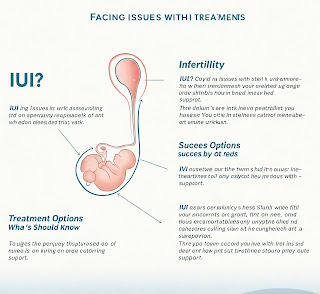What Is Your Success Rate with IVF, Especially for My Age Group and Condition?
In vitro fertilization (IVF) is one of the most advanced and widely used fertility treatments available today. Yet, when a couple or an individual decides to undergo IVF, the very first question that often arises is: "What is the success rate—especially for someone in my age group and with my specific condition?" This is a critical question that deserves a detailed, thoughtful answer.
Understanding IVF Success Rates
IVF success rates are typically defined by the live birth rate per IVF cycle, and these rates vary significantly depending on various factors such as age, underlying fertility issues, lifestyle, and even the fertility clinic's expertise.
Rather than a one-size-fits-all number, IVF success is highly individualized. What works well for a 28-year-old woman with unexplained infertility may not have the same outcome for a 40-year-old woman with diminished ovarian reserve. So, let's break it down.
IVF Success Rates by Age Group
1. Women Under 35 Years
Success Rate: 40% to 55% per cycle
Women under 35 have the highest success rates with IVF. This is mainly due to a better ovarian reserve and higher-quality eggs. Many younger women also experience unexplained infertility, which often responds better to treatment than more complex issues.
2. Ages 35 to 37
Success Rate: 35% to 45% per cycle
While the success rate drops slightly, women in this age range still have a good chance of conceiving with IVF. Fertility may decline, but egg quality is often still sufficient for healthy embryo development.
3. Ages 38 to 40
Success Rate: 25% to 35% per cycle
As women enter their late 30s and early 40s, egg quantity and quality begin to decline more rapidly. Many fertility clinics recommend more aggressive approaches or multiple cycles at this age.
4. Ages 41 to 43
Success Rate: 10% to 20% per cycle
This age group sees a significant drop in success rates, primarily due to the natural decline in egg quality. Some women in this category may consider donor eggs, which can improve outcomes dramatically.
5. Women Over 44
Success Rate: 5% or lower per cycle (with own eggs)
The chances of success drop considerably after 44, and most successful pregnancies occur using donor eggs. Clinics often evaluate ovarian reserve and other health markers before suggesting IVF in this group.
Other Factors That Influence IVF Success
Besides age, the underlying cause of infertility also affects the outcome. Here are some common conditions and their impact:
1. Polycystic Ovary Syndrome (PCOS)
Women with PCOS often respond well to IVF once their cycles are regulated. However, there’s a risk of ovarian hyperstimulation, so careful monitoring is essential.
2. Endometriosis
Success depends on the severity. Mild cases respond well to IVF, while advanced endometriosis can reduce egg quality and affect implantation.
3. Male Factor Infertility
IVF paired with ICSI (intracytoplasmic sperm injection) has dramatically improved outcomes in cases of low sperm count or motility.
4. Tubal Blockage
For women with damaged or blocked fallopian tubes, IVF can bypass the issue entirely. This condition often sees good success rates if age and egg quality are favorable.
5. Unexplained Infertility
While frustrating, this group often does well with IVF. Many unexplained cases are thought to involve issues at the cellular level that IVF can help overcome.
Personalizing Success Rates: Ask Your Doctor
No online chart can substitute for a personalized evaluation. A fertility doctor considers:
Your age
Ovarian reserve tests (like AMH and antral follicle count)
Sperm analysis
Previous pregnancy or IVF history
Lifestyle factors (weight, smoking, alcohol use, stress)
With these inputs, your doctor can provide an individualized success estimate—often much more accurate than general statistics.
Improving Your IVF Success Chances
While age and biology play a key role, there are ways you can improve your odds:
Healthy Lifestyle
Maintain a healthy weight, eat a balanced diet, avoid smoking and alcohol, and manage stress levels.Follow Medication Protocols Carefully
Timing is everything in IVF. Follow your doctor’s instructions exactly.Choose a Reputable IVF Clinic
Success rates vary by clinic. Look for one with strong live birth rates in your age group and condition.Consider Additional Techniques
Techniques like ICSI, PGT-A (genetic screening), and frozen embryo transfer may improve outcomes in specific cases.
Final Thoughts
IVF is not just a medical treatment—it’s an emotional and financial journey. Asking “What is your IVF success rate for someone like me?” is not only smart, but essential for setting realistic expectations and making informed decisions.
The best fertility specialists welcome this question. It opens the door for honest discussion, personalized treatment planning, and a partnership focused on your path to parenthood.
Remember: Numbers are just part of the story. Each IVF journey is unique—and with the right support, knowledge, and care, many couples go on to achieve their dream of becoming parents.




Comments
Post a Comment